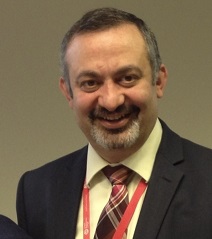Ali Hadawi and James Crabbe FRSA argue that the further education sector needs to develop a stronger mission and vision for the future, allowing it, like the students it serves, to develop its own culture and expertise and maximise its potential.
The complex and fundamental challenges facing the further education sector are as real now as they were when the Foster Review published its findings in 2005. These centre around two areas: the mission of the sector and its purpose for existence; and what metrics can and should be used to judge the sector’s impact.
Developing a clearer and compelling mission requires a culture change within the sector. However, a 2007 study concluded that the: “evidence suggests that there is no integrated pattern of shared beliefs or behaviours that can claim to be a distinct entity. External factors are more likely to determine the situated social practices that exist within colleges.’ The situation has changed little since then, with great variation between individual colleges.
The current state of further education in the UK points to a major system failure beyond funding cuts, Area Based Reviews, loss of control of destiny and new measures of success. The system failure, and lack of a shared culture, is not just in one quarter. It is in colleges’ failure of leadership to drive the agenda on skills, productivity and closing skills gaps, and in the Association of Colleges’ (AoC) inability to enable such a debate about leadership to take place. It is also in the failure of government to create the right policy framework and in Ofsted in measuring impact, not focusing on what matters most to the nation.
What matters most to the further education sector is to be and to be seen to be effective in a number of areas. First, in enabling learners to progress to work and/or higher study. Second, in closing skills shortages in their localities. Third, in contributing directly to business growth and prosperity. Fourth, in contributing directly and tangibly to improving community cohesion, reducing reoffending, improving the independence of young people with profound and multiple disabilities, and empowering people to deal with mental illness and similar debilitating conditions. Finally, there are other, subtler, aspects such as colleges’ ability to respond to the specific needs of rural economies or inner cities.
The sector needs a new mission and shared culture focused around a technical, vocational education and training offer that is targeted on closing skills shortages and skills gaps in education, enhancing community cohesion and improving productivity. This must be underpinned by robust impact measurements. One possibility would be to explore a non-financial and intangible value metric where social value is aligned to the sector mission. A robust approach would enable key stakeholders to agree on areas of focus in a specific geographical area or over a specific period of time.
In late 2013 Central Bedfordshire College, a general further education college serving about 5,500 learners with a turnover of around £12 million, was judged to be Good by Ofsted. In its pursuit of excellence, it looked for better practice to learn from. The college worked in partnership with the Helen Hamlyn Trust’s Open Futures Programme to explore the possibility of adapting philosophical enquiry to the technical and vocational education and training sector. The purpose was to use this work as part of a strategy to drive improvements in teaching, learning and assessment in raising the aspirations of learners and teachers.
Central Bedfordshire College has developed a new way for further education students to make sense of their realities and how their vocational studies could impact on their future career and wider society. The work focuses on vocational teachers engaging with students on matters that directly impact on their aspirations and self-esteem, relating training to their locality and future careers. This is based on developing students’ ability to articulate philosophical questions and to deal with each others’ view in a mature manner. Using an enquiry-based approach, the aim is to develop students and apprentices as people who can think critically and creatively and learn independently. Its power emanates from what students are able to do by the time they finish any course at whatever level at the college.
The impact this approach can be evidenced by the college’s 98% positive progression to employment or further/higher education, as well as the May 2016 Quality Assurance Agency (QAA) Review and April 2016 Ofsted inspection reports. Central Bedfordshire College is leading the way in using academic research to improve practice in teaching, learning and assessment in the sector and is now embarking on an ambitious project, in partnership with the Helen Hamlyn Trust, to help seven other further education colleges adopt the practice.
Changing Culture
Valid assessment of projects like the Bedfordshire initiative, would benefit considerably by using metrics such as the Social Earnings Ratio (S/E or SERatio) for social value aligned to the sector mission. These could unite key stakeholders in one area around specific local issues over a specific period of time. For example, if the need in a certain locality is to address skills shortages or to focus on community cohesion, all that is needed is a change in the weighting of the various components of such a measure. This would allow development of a further education mission, which could be utilised nationally, regionally and locally.
A pilot experiment at Central Bedfordshire College showed that the intangible social value addition for a small further education college with an annual budget of approximately £12m delivers to the community and taxpayers an intangible value addition of nearly £30m per annum. This pilot demonstrated that the Social Value Ratio can be applied to a college using readily available data and that the results can be replicated for any college. Once more, using this metric can enable a direct comparison between the intangible impact of further education colleges and/or private sector entities.
In applying this approach across the sector, success will depend upon sector leaders starting a national discourse on the mission of further education and the inappropriateness of the current set of measures in delivering this. It will require the sector to be more targeted in addressing skills gaps\shortages and productivity, while measuring local impact. These changes need to be backed by a review of whether the current Ofsted framework is relevant or whether there is a need to align performance measures with the new mission. Colleges should be able to prioritise and focus on the important measurements. Given there are over 330 colleges in England alone, the impact of such an approach could be transformative.
This idea, together with much underlying data, is developed further in our paper “Developing a Mission for Further Education: Changing Culture using non-financial and intangible value”, to be published in the journal Research in Post-Compulsory Education. Ali Hadawi, CBE, Principal of Central Bedfordshire FE College, and Professor James Crabbe FRSA, Chair of Governors of the College, discuss a new approach to developing robust measures of social impact to guide funding for Further Education.
Related articles
-
You can lead a horse to bitesize online content, but can you make it learn?
Zahra Davidson
In preparation for judging the RSA Student Design Awards Learning for Life brief, Zahra Davidson pins down what she learnt about lifelong learning.



Join the discussion
Comments
Please login to post a comment or reply
Don't have an account? Click here to register.
I fear as a non educationalist to venture into someone else's expert domain, however is not the problem the mistaken belief in many that variation in process (of in this case education) is the cause of variation in outcome and reduction in overall performance, hence the national curriculum etc. What this study showed if I read it right is that local diversity led to better outcomes, so perhaps OFSTED with it's single view of what is good is part of the problem.
There is emerging evidence in my field (healthcare) that diversity of provision improves both the overall (average outcome) and the overall diversity in outcomes. Thus small may not merely be beautiful but also better, though currently we encourage large homogenous units economically!
Thank you for this piece with which I strongly agree. Much of what you describe and propose applies equally to the school sector. As someone whose career has been spent largely with the latter I think it would be really worthwhile to consider this in the context of the whole education system. I would be delighted to take part in such discussions.